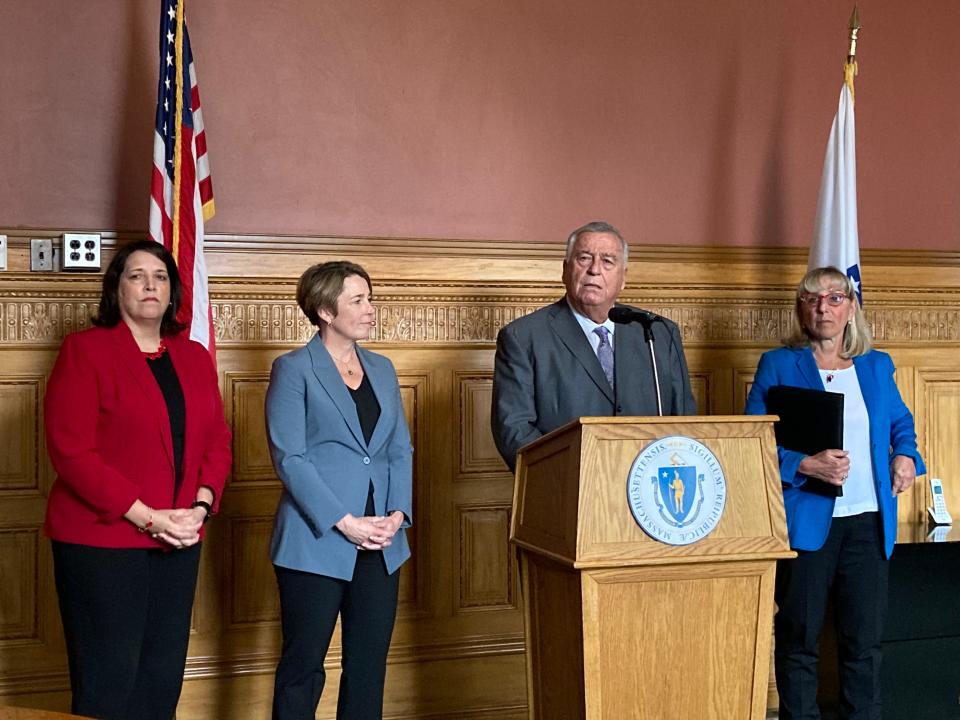Making the numbers add up: State legislators tackle supplemental budget
BOSTON — Both houses of the Massachusetts Legislature have acted on the $282 million supplemental budget proposed by Gov. Maura Healey, with each branch passing its version — including revisions — within the last week.
Now it’s about process — the appointment of a conference committee made up of senators and representatives to review and reconcile items in the document and then to enact it.

The governor’s proposal is $282 million. The Senate version kicked it up another $86 million to $368.7 million, with $814 million in bonding authorizations. The House passed the supplemental budget after adding more than a half-billion dollars for bonding projects.
What's at stake?
Funding for current programs: universal free school meals for all public school students in Massachusetts, no income restrictions; emergency shelter for immigrants and vulnerable families; funds for school districts enrolling new immigrant students; and money to replace a portion of supplemental federal funds authorized during the COVID-19 pandemics and paid to some 630,000 Massachusetts families receiving Supplemental Nutrition Assistance Program (SNAP) benefits.
Supplement to SNAP
The biggest chunk of the supplemental budget, $130 million, is earmarked to provide what Healey has called “an off-ramp” for families receiving the additional federal SNAP benefits. The funds, about 40% of the additional federal benefit, would be paid for three months.
Universal free school meals
Another $65 million is earmarked to continue the state’s universal school meals program through the end of the academic year in June. The Legislature appropriated $110 million for the program in the last session. Turns out, it was short of what was needed.
Emergency housing is included in the supplemental budget, with $45 million for emergency shelter for the state’s vulnerable population. And $40 million to support housing for an expected influx of immigrants and refugees.
If passed, there’s $22 million for the state’s school districts that are enrolling new immigrant and refugee students as well as students who are relocating due to housing issues.
Funds for early ed providers
In the Senate version, $68 million was earmarked for the Early Education C3 stabilization grant program, a state program that benefits providers of child care and early education.
Under the Senate spending plan, smaller amounts would be distributed to the following programs:
$8.3 million for judgments, settlements and legal fees
$7 million for coordinated wraparound services for immigrants and refugees
$2 million to pay back victims of SNAP benefit theft
$2 million for the 114th National NAACP conference to be held in Massachusetts in 2023
$1 million for a public service campaign alerting the public to the misinformation offered by “crisis pregnancy centers and their lack of medical services
$250,000 for the free abortion related legal hotline run by Reproductive Equity Now
This article originally appeared on Telegram & Gazette: Massachusetts lawmakers amend, pass governor's supplemental budget

